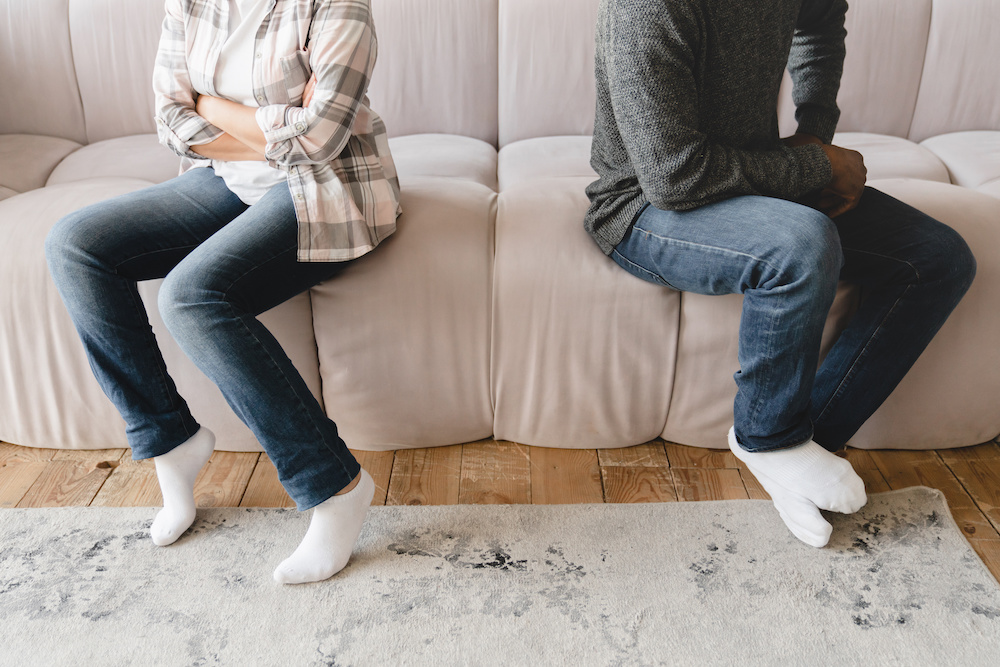
Maybe you’ve dated someone in the past who was clingy or someone who was scared of affection. Maybe this was you in the relationship. We are all different, and we come from different upbringings. According to attachment theory, our early relationships play out into what’s known as an attachment style.
Anxious attachment is one style that is exhibited by people, and is carried with them in a relationship. If your partner has an anxious attachment style they are simply craving emotional intimacy and require a bit more validation from you. Find out how you can help them feel more supported while bringing you both closer.
What is Attachment Theory?
Attachment theory is the study of how our childhood experiences with our caregivers affect our adult relationships. According to attachment theory, our different attachment styles are largely dictated by these early relationships. The beliefs and behaviors developed in early childhood impact our adult relationships, whether romantic or platonic.
What is an Attachment Style?
The way that our childhood experiences with our parents (or other caregivers) emerge are categorized into four different forms, known as attachment styles. A person’s attachment style refers to the particular way they relate to other people. Although formed early on, they stick with us well into adulthood, affecting our relationship with everyone from our partners, and friends, to our children.
As children, we seek comfort and support from our caregivers. If both our physical and emotional needs are met, we become what’s known as ‘securely attached’. If on the other hand, our caregivers do not satisfy these needs, we develop ‘insecure attachment’.
Anxious Attachment Style
One type of insecure attachment is known as anxious attachment. According to research, about 20% of the population has this style. Anxious attachment style is also known as preoccupied attachment, which means they are preoccupied with how they are perceived by you, and they are constantly overanalyzing your relationship.
A partner with an anxious attachment style is always scanning your behavior and interactions, looking for signs that you may not love them anymore. They may think you will abandon them at any point, and therefore they can never relax or feel comfortable in the relationship. Additionally, it may seem like they are not happy with anything you do. And it may feel like they are never truly satisfied.
Understanding Your Partner’s Anxious Attachment Style
As their partner, you may feel criticized or pushed. You may think your partner is overly emotional or dramatic. It might seem like they make a big deal out of everything. In response, you might try to please your partner, but that can’t work in the long run. Another response may be to separate from that person altogether because it feels like too much for you to handle.
The success of any relationship relies on the willingness to understand the other person. Identifying that your partner has an anxious attachment style is a good first step. The next step is to work to change or increase behaviors so that they can feel more secure.
Below are seven tips designed for partners of people with an anxious attachment style. Try these out for a positive change in your relationship.
7 Tips to Help Your Relationship with an Anxious Attachment Style Partner:
1| Know your partner wants to feel loved by you
They always want to be closer to you, and receive love and affection from you. This is the root of it all. You may think that they should already know you love them. However, an anxious partner needs you to confirm this on a regular basis. Acknowledge them with your words. Words of affection are powerful. Don’t forget the “I love you’s.” Tell them how grateful you are to be with them, and remind your partner of all their positive qualities.
2| How genuine interest in how they feel
Ask them about what they feel and what they need. Engage in meaningful communication with your partner. Listen to what they have to say. Questions show concern. Simply asking them about their day can go a long way to make your partner feel more supported.
3| Give affection on a daily basis
Anxious types respond well to physical signs of affection, like hugs and kisses. Even a simple touch can be impactful. Make a point to hold their hand whenever you can. Physical affection gives them the reassurance they are seeking and makes them feel wanted.
4| Sit closer, lean in, create eye contact
Body language can be more important than words. Everyone wants to feel like they are worth the time. Someone on the anxious side especially appreciates when you give undivided attention. When you’re with your partner, show them that you are truly present and they are more important than the distractions around you. Ditch your phone and look into their eyes; they’ll feel close and connected to you.
5| In an argument, listen to the words they say, not the tone of voice
It is common for anxious partners to raise their tone of voice when upset. This is because they don’t feel understood. If you say “I can’t hear you like this” or “notice your tone”, they can become even more upset. It can make them feel like the substance of what they say doesn’t matter. Instead, ask them to slow down. You can say, “I know this is important to you, and it’s important to me too. Please slow down so I can hear this clearly”.
6| Be open and willing to talk about your relationship
An anxious partner won’t be able to relax until you address anything awry in the relationship, even a small thing. They will want to talk about it and discuss it together. Take the time to address it with them. Communication can be hard for anxious partners, so be willing to take the lead.
7| Criticism is simply a request for attention
If your partner has unmet needs they may feel frustrated, and understandably so. This can make them feel alone. They may feel like you two are speaking different languages. In distress they may act out and blame you. Try to recognize that at this moment they simply want to connect with you. They are thinking “I want you to respond to me better because I want to be close to you because I love you”. Try not to take it personally.
A Person is Not Their Attachment Style
It’s important to remember that although they need your support, your partner is not broken or in need of you to fix them. Also keep in mind, no one fits any attachment style to a tee. Instead, you will see some behaviors that are true to the person, while others don’t manifest. Attachment styles may also overlap.
Understanding Your Attachment Style and Your Partner’s is Key to A Healthy Relationship
Find out what your own attachment style is with this Quiz.
Once you understand the interaction between your attachment style and that of your partner, you will be empowered to communicate more effectively. You’ll also be more equipped with the tools necessary to break through any limitations that may exist.
Therapy can be invaluable both for the individual and for the couple. Sign up for a couples workshop to further strengthen your relationship. You have the power to stop the pattern of unhelpful behavior and start building a lasting connection today!
 Call Us Now
Call Us Now


